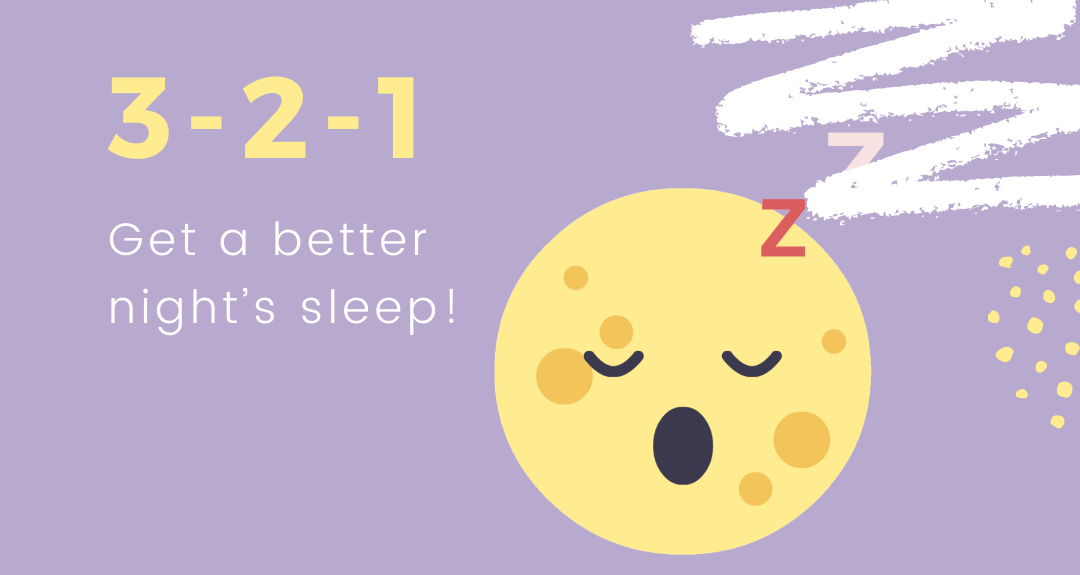The 3-2-1 Approach to Better Sleep

In the quest for a good night’s sleep, the 3-2-1 approach provides a straightforward yet powerful strategy to enhance sleep quality. This method breaks down the hours leading up to bedtime, focusing on specific restrictions to create an optimal sleep environment.
By restricting food three hours before bed, refraining from water two hours before, and avoiding electronic devices one hour before, individuals can significantly improve their sleep and overall health and well-being.
3 Hours Before Bed: No Food
Sleep is when our body focuses on repairing tissues and removing toxins. Consuming a heavy meal close to bedtime disrupts this process and may result in indigestion and discomfort, making it harder to relax and fall asleep. Studies show that eating close to bedtime decreases the time that we spend in deep, restful sleep – that includes alcohol! Think of it this way – why do you need to consume a lot of calories when you’re just going to bed and won’t need the energy for activity. If you find yourself really hungry, opt for a light snack focusing on easily digestible options like a small piece of fruit or a handful of nuts.
2 Hours Before Bed: No Water
 Hydration is vital for overall health, but consuming liquids too close to bedtime can lead to disruptive trips to the bathroom during the night. The second phase of the 3-2-1 approach encourages individuals to limit water intake two hours before bed. This allows the body sufficient time to process and eliminate excess fluids, reducing the likelihood of interruptions to sleep. Staying adequately hydrated throughout the day remains essential; simply adjust your intake timing and drink more water throughout the day to align with optimal sleep patterns.
Hydration is vital for overall health, but consuming liquids too close to bedtime can lead to disruptive trips to the bathroom during the night. The second phase of the 3-2-1 approach encourages individuals to limit water intake two hours before bed. This allows the body sufficient time to process and eliminate excess fluids, reducing the likelihood of interruptions to sleep. Staying adequately hydrated throughout the day remains essential; simply adjust your intake timing and drink more water throughout the day to align with optimal sleep patterns.
1 Hour Before Bed: No Electronic Devices
The final hour leading up to bedtime calls for a digital detox. Electronic devices emit blue light that interferes with the body’s natural production of melatonin, the sleep-regulating hormone. By disconnecting from screens one hour before bed, individuals signal to their bodies that it’s time to wind down. Engage in calming activities such as reading a book, practicing relaxation exercises, or enjoying a warm bath to prepare your mind and body for restful sleep.
One of the best actions you can take to improve your overall health is to assure your behaviors enhance better quality sleep. By incorporating these simple adjustments into your evening routine, you can create an environment conducive to a good night’s rest and better health.
Yours in health & fitness,
Sherri McMillan
